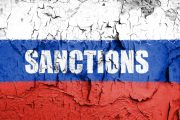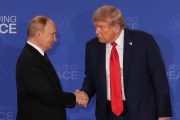The Council of Europe is set to investigate the World Health Organization’s swine flu campaign this month over allegations of improper influence from pharmaceutical companies in declaring the H1N1 “pandemic” and the promotion of “inefficient” and potentially dangerous vaccination strategies.
The resolution to launch the emergency inquiry was approved by the Parliamentary Assembly of the Council of Europe (PACE) and passed through the health committee unanimously. It states in part that “in order to promote their patented drugs and vaccines against flu, pharmaceutical companies influenced scientists and official agencies responsible for public health standards to alarm governments worldwide and make them squander tight health resources for inefficient vaccine strategies, and needlessly expose millions of healthy people to the risk of an unknown amount of side-effects of insufficiently tested vaccines.”
“The ‘birds-flu’-campaign (2005/06) combined with the ‘swine-flu’-campaign seem to have caused a great deal of damage not only to some vaccinated patients and to public health-budgets, but to the credibility and accountability of important international health-agencies,” noted the resolution. “The Council of Europe and its member-states should ask for immediate investigations and consequences on their national levels as well as on the international level. The definition of an alarming pandemic must not be under the influence of drug-sellers.”
Leading the charge for the probe is German epidemiologist Dr. Wolfgang Wodarg, the chairman of the PACE health committee and a medical doctor specializing in lung disease. “The victims among millions of needlessly vaccinated people must be protected by their states and independent scientific clarification should provide evidence and transparency for national and — if necessary — European courts,” Wodarg said in a statement.
Wodarg called the “false pandemic” one of the greatest medical scandals of the last century and said that pharmaceutical companies influenced the whole process and needed to be held accountable. They were willing to "inflict bodily harm in their pursuit of profits," he said. Articles in the European press, starting in Denmark and spreading, have repeatedly called into question the myriad ties between vaccine manufacturers and decision makers in the United Nations’ global health body.
Earlier this year the WHO redefined the term pandemic, lowering the threshold for an emergency declaration by removing the requirement of an “enormous” number of deaths. The WHO estimated that by the end of 2009, around 10,000 people had died from swine flu-linked complications. Seasonal influenza kills between 250,000 and 500,000 per year on average, according to the organization.
News reports earlier this year, citing the UN, warned of millions of deaths around the world unless nations promptly proceeded with the controversial vaccination schemes being promoted by the WHO — along with forking over billions of dollars. Since then, the disease has proved relatively mild despite the wild fearmongering campaigns waged by governments, such as the President’s Council of Advisors on Science and Technology that warned that 90,000 Americans could die from the H1N1 virus.
The incident has reminded people of the avian flu scare. In September of 2005, the chief of the UN’s bird flu preparations estimated that the epidemic could cause up to 150 million human deaths. So far, the WHO has confirmed slightly more than 250. The bird flu propaganda campaign will also be investigated by the “urgent” inquiry.
National governments should be ashamed of themselves for squandering billions of taxpayer dollars on an untested, unpopular vaccine for a virus that so far has been extremely mild compared to even the seasonal influenza. Governments are currently trying to get rid of the vaccine supplies. Global health authorities must be held accountable, though it’s unfortunate that the charge is being led by a European supranational body instead of national legislatures.
The United States should get involved as well — starting with a complete withdrawal from the UN and its subsidiary bodies. Obama’s declaration of a national emergency over swine flu is looking increasingly preposterous. Of course, Congress should also be held accountable for allowing this all to happen in America in the first place, despite the lack of constitutional authority to purchase or promote vaccines. But on the bright side of this whole scandal, citizens may start realizing that government is not a reliable resource for honest and accurate information. The New American has been reporting about these issues for months.
Photo of Michael Ryan, WHO Director of Global Alert and Response: AP Images
Correction: This article as originally published inaccurately linked the Council of Europe to the European Union. It has now been corrected. Our apologies for any confusion this may have caused.




